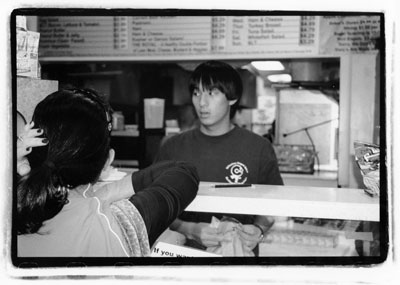All Nonfiction
- Bullying
- Books
- Academic
- Author Interviews
- Celebrity interviews
- College Articles
- College Essays
- Educator of the Year
- Heroes
- Interviews
- Memoir
- Personal Experience
- Sports
- Travel & Culture
All Opinions
- Bullying
- Current Events / Politics
- Discrimination
- Drugs / Alcohol / Smoking
- Entertainment / Celebrities
- Environment
- Love / Relationships
- Movies / Music / TV
- Pop Culture / Trends
- School / College
- Social Issues / Civics
- Spirituality / Religion
- Sports / Hobbies
All Hot Topics
- Bullying
- Community Service
- Environment
- Health
- Letters to the Editor
- Pride & Prejudice
- What Matters
- Back
Summer Guide
- Program Links
- Program Reviews
- Back
College Guide
- College Links
- College Reviews
- College Essays
- College Articles
- Back
America, Meet China MAG
How many of China’s provinces can you name? In his poem “Have They Run Out of Provinces Yet?” published in The New Yorker, Calvin Trillin names six. The poem ignited a flurry of backlash across the Internet. In it, Trillin adopts a weary and flip tone as he laments the increasing varieties of Chinese cuisine available to Americans and longs for the good old days when “Chinese food” meant simply “chow mein.” Though the intent of the poem seems to have been poking fun at foodies, critics have accused Trillin of being, at best, culturally tone-deaf and, at worst, racist. Whether or not Trillin is himself a xenophobe, his poem, and the fact that it was published in one of the most respected magazines in the country, reflects an issue that is both troubling and confounding: Most Americans know next to nothing about China.
With advancements in technology, our lives are increasingly globalized. Interconnection means interdependence, and when it comes to the greater international community, there is no excuse for ignorance. Critical matters, such as the climate, the economy, and public safety, are no longer contained within certain regions or countries or people. If the polar ice caps melt or the global economy fails or the nukes start flying, it won’t make any difference who was at fault; everyone on the planet will pay.
With the largest population on Earth, the largest military, and an economy that experts predict will surpass that of the U.S. by 2020, China is a major force in the global community. And yet, most Americans cannot name its president.
As representatives of the world’s two largest greenhouse gas polluters, President Xi Jinping and President Barack Obama each signed the Paris Agreement on climate change. This is the first global pact to commit nearly every country to addressing the serious problem of climate change, negotiations for which were led by China. China is, in fact, the largest investor in clean energy.
With nearly 7 million young people graduating from colleges every year, the Chinese are increasingly poised to compete with Americans for career opportunities, not to mention technology innovation. The new frontier of Facebook, which will allow users to make purchases from businesses directly through the app, was inspired by the Chinese app WeChat. And the Chinese company Huawei is currently the third biggest maker of smart phones worldwide, competing with Apple and Samsung in the European market.
What makes China’s global influence so impressive is the fact that it’s been achieved in a relatively short time. Just three decades ago, China was a poor country whose people couldn’t afford cars and needed ration coupons to buy food and clothes. Now, the country seems poised to join America as a world superpower. Yet, how can we hope to have a positive – let alone productive – relationship if we don’t know anything about each other?
This isn’t to say the Chinese are ignorant about America. On the contrary, people in China are surprisingly well-versed in American history and culture. During my recent travels through China, I was repeatedly surprised by how much people seemed to know about the United States. I encountered cab drivers in China who understood the current American political climate better than the average American citizen.
When I talk to Americans about China, their repertoire is pretty limited: They may have a vague sense that China has a pollution problem or that it’s involved in a skirmish over the South China Sea. They might know what animal they are in the Chinese zodiac, and they’ve probably seen “Mulan.” Like the speaker in Calvin Trillin’s poem, most Americans are at least marginally familiar with Chinese cuisine, and so they think of China as the birthplace of General Tso’s Chicken and fortune cookies (both of which, in fact, were invented in the U.S.). It’s shocking how few Americans are aware of the contributions China is making in the global arena, let alone understand or even express curiosity over the rich and diverse Chinese culture. It’s a little-known fact in America that within China’s 23 provinces there are over 50 ethnic groups, each with its own language, religious beliefs, customs and, yes, cuisines.
So, to answer your question, Mr. Trillin, no. Not even close.

Similar Articles
JOIN THE DISCUSSION
This article has 0 comments.

My inspiration to write this piece came from the sudden but jarring recognition that we as a nation can be surprisingly insular when it comes to our consumption of information and knowledge. Our lack of knowledge about China seemed especially surprising to me, especially after visiting the country and realizing, in stark contrast, how much people seemed to know about America.